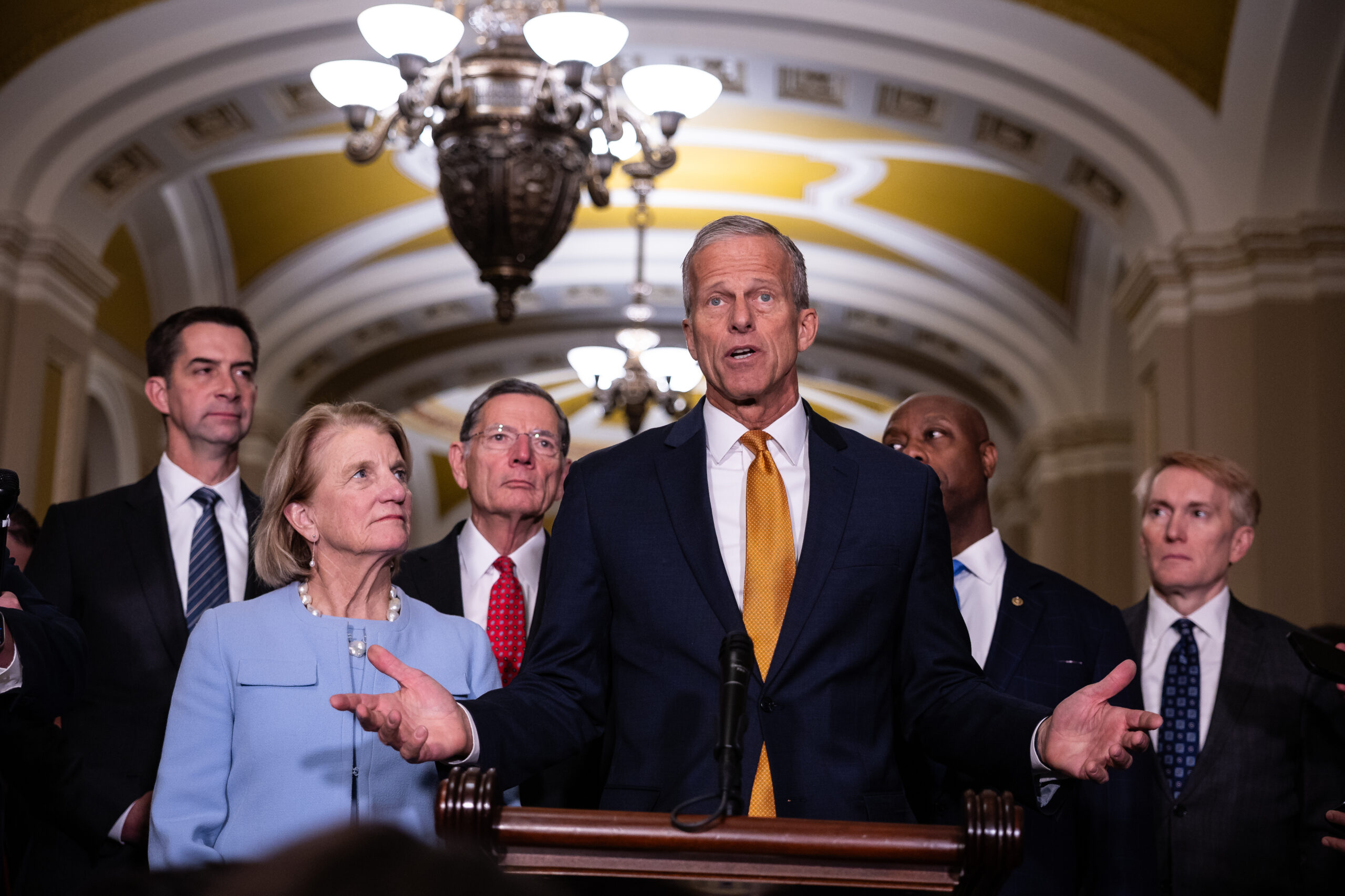Politics
SNAP Benefits Face Unprecedented Funding Lapse as Senate Rejects Aid

The Supplemental Nutrition Assistance Program (SNAP) is on the brink of its first-ever funding lapse as the United States Senate appears poised to reject proposed funding patches. This potential shortfall comes amid ongoing disputes between Republican and Democratic leaders regarding broader federal government funding.
Senate Republicans, led by figures such as Senate Minority Leader Mitch McConnell, are advocating for a complete reopening of the federal government, a move they believe will pressure Democrats to concede to their demands. The GOP’s strategy centers on the notion that a government shutdown could force negotiations over spending and fiscal policies, including SNAP funding.
As of October 2023, the looming threat of a lapse in SNAP funding could impact millions of Americans who rely on this program for daily sustenance. The program, which provides nutritional assistance to low-income individuals and families, has historically served as a crucial safety net. In fiscal year 2022, SNAP assisted approximately 41 million Americans, highlighting its critical role in addressing food insecurity.
In Washington, D.C., the political landscape remains tense. Senate Majority Leader Chuck Schumer has indicated that without a bipartisan agreement, the federal government could face significant disruptions. The Democratic leadership argues that the GOP’s insistence on a full government reopening is unwarranted, particularly at a time when many citizens depend on essential services like SNAP.
Funding for SNAP has usually been guaranteed, but the current political climate has created uncertainty. If the Senate fails to approve the necessary funding patches, the consequences could be severe. House Speaker Kevin McCarthy has stated that the GOP will continue to apply pressure until a satisfactory resolution is reached, emphasizing their commitment to addressing what they describe as fiscal irresponsibility within the federal budget.
The Senate’s upcoming vote will be crucial. A rejection of the proposed funding patches not only risks a lapse in SNAP benefits but could also trigger broader implications for other government services. Should the funding lapse occur, low-income families will face immediate challenges in accessing food resources, exacerbating existing issues related to food insecurity.
As this situation develops, the stakes are high for both parties. The outcome will significantly shape the political landscape leading up to the upcoming elections, as voters increasingly prioritize issues related to social safety nets and economic stability. The urgency for a solution is palpable, and both sides must navigate the tightrope of political strategy while considering the human impact of their decisions.
In summary, the potential lapse in SNAP benefits underscores a critical moment in American politics, with vital implications for public welfare and government operations. The next steps taken by the Senate could either alleviate or exacerbate the challenges facing millions of Americans.
-

 Science2 weeks ago
Science2 weeks agoIROS 2025 to Showcase Cutting-Edge Robotics Innovations in China
-

 Politics2 weeks ago
Politics2 weeks agoJudge Considers Dismissal of Chelsea Housing Case Citing AI Flaws
-

 World2 weeks ago
World2 weeks agoBravo Company Veterans Honored with Bronze Medals After 56 Years
-

 Lifestyle2 weeks ago
Lifestyle2 weeks agoStone Island’s Logo Worn by Extremists Sparks Brand Dilemma
-

 Health2 weeks ago
Health2 weeks agoStartup Liberate Bio Secures $31 Million for Next-Gen Therapies
-

 Top Stories2 weeks ago
Top Stories2 weeks agoIndonesia Suspends 27,000 Bank Accounts in Online Gambling Crackdown
-

 Health2 weeks ago
Health2 weeks agoTop Hyaluronic Acid Serums for Radiant Skin in 2025
-

 Sports2 weeks ago
Sports2 weeks agoMel Kiper Jr. Reveals Top 25 Prospects for 2026 NFL Draft
-

 World2 weeks ago
World2 weeks agoHoneywell Predicts Record Demand for Business Jets Over Next Decade
-

 Sports2 weeks ago
Sports2 weeks agoYamamoto’s Mastery Leads Dodgers to 5-1 Victory in NLCS Game 2
-

 Politics2 weeks ago
Politics2 weeks agoNew Jersey Voters Urged to Register Ahead of November Election
-

 Lifestyle2 weeks ago
Lifestyle2 weeks agoMary Morgan Jackson Crowned Little Miss National Peanut Festival 2025








